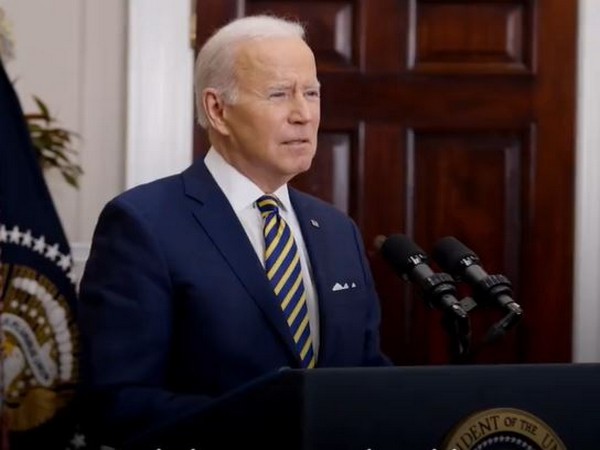Biden starts Asia trip with global issues and tech on agenda

- Country:
- South Korea
President Joe Biden is opening his trip to Asia with a focus on the computer chip shortage that has bedeviled the world economy, touring a Samsung computer chip plant that will serve as a model for a $17 billion semiconductor factory that the Korean electronics company plans to open in Texas.
The visit Friday is a nod to one of Biden's key domestic priorities of increasing the supply of computer chips. A semiconductor shortage last year hurt the availability of autos, kitchen appliances, and other goods, causing higher inflation worldwide and crippling Biden's public approval among U.S. voters.
Biden will grapple with a multitude of foreign policy issues during a five-day visit to South Korea and Japan, but he also crafted an itinerary clearly meant to tend to the concerns of his home audience as well.
Previewing the trip aboard Air Force One, White House national security adviser Jake Sullivan said Samsung's investment in Texas will mean “good-paying jobs for Americans and, very importantly, it will mean more supply chain resilience.” Biden also aims to boost economic and military connections with South Korea and Japan, key alliances as the U.S. and China, the world's two largest economies, increasingly compete against each other despite the high volume of trade between the two countries.
In Beijing, Foreign Ministry spokesperson Wang Wenbin said China noted Sullivan's remarks that Biden's visit to the region “is not aiming at confrontation with China.” “We hope that the U.S. side can match its words with deeds, and work with regional countries to discuss a plan for solidarity and cooperation in the Asia-Pacific region, rather than plotting plans for division and confrontation,” Wang told reporters Friday at a daily briefing.
Greeting Biden at the plant in South Korea will be the country's new president, Yoon Suk Yeol, and Samsung Electronics Vice Chairman Lee Jae-Yong. Yoon is a political newcomer who became president, his first elected office, slightly more than a week ago. He campaigned on taking a tougher stance against North Korea and strengthening the 70-year alliance with the U.S.
Part of the computer chip shortage is the result of strong demand as much of the world emerged from the coronavirus pandemic. But coronavirus outbreaks and other challenges also caused the closure of semiconductor plants. U.S. government officials have estimated that chip production will not be at the levels they would like until early 2023.
Global computer chip sales totaled $151.7 billion during the first three months of this year, a 23% jump from the same period in 2021, according to the Semiconductor Industry Association.
More than 75% of global chip production comes from Asia. That's a possible vulnerability the U.S. hopes to protect against through more domestic production and $52 billion worth of government investment in the sector through a bill being negotiated in Congress.
The risk of Chinese aggression against Taiwan could possibly cut off the flow of high-end computer chips that are needed in the U.S. for military gear as well as consumer goods. Similarly, hermetic North Korea has been test-firing ballistic missiles amid a coronavirus outbreak, a possible risk to South Korea's manufacturing sector should the brinksmanship escalate.
In terms of chip production, China leads the global pack with a 24% share, followed by Taiwan (21%), South Korea (19%), and Japan (13%). Only 10% of chips are made in the U.S., according to the Semiconductor Industry Association.
Samsung announced the plant in Taylor, Texas in November 2021. It hopes to begin operations in the second half of 2024. The South Korean electronics giant chose the site based on a number of factors, including government incentives and the “readiness and stability” of local infrastructure.
The White House said in a fact sheet issued Friday that semiconductor companies have announced nearly $80 billion in U.S. investments through 2025. That sum includes $20 billion for Intel's plant outside Columbus, Ohio, up to $30 billion for Texas Instruments, a $1 trillion expansion by Wolfspeed in North Carolina, and investments by Global Foundries and SK Group.
(This story has not been edited by Devdiscourse staff and is auto-generated from a syndicated feed.)
ALSO READ
South Korea's president faces a crucial referendum in parliamentary election
South Koreans vote for new parliament after campaign focused on economy, graft
South Korea opposition set for big win in legislative election in blow to Yoon
Exit polls suggest a big win by South Korea's liberal opposition parties in parliamentary election
South Korea opposition parties projected to retain majority in legislature -exit poll










